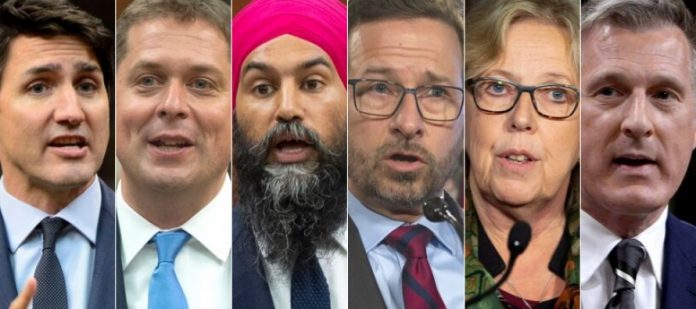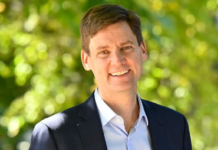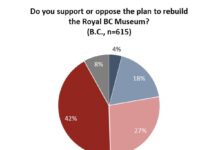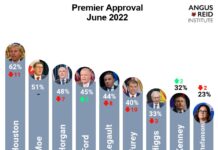Three-way race in B.C; BQ and Liberals deadlocked in Quebec; Liberals, CPC tied in Ontario
AS party leaders begin the final week of Canada’s 43rd federal election campaign, they do so experiencing an unsettling case of déjà vu, says the not-partisan, not-for-profit Angus Reid Institute.
While the last month has featured twists and turns on the hustings, it has done little to enable either of the front-running parties to pick up the momentum required to find themselves within striking distance of a majority government.
The latest polling data from the Angus Reid Institute shows the Conservative Party – which has held a narrow lead since the writs were drawn – losing forward thrust.
The CPC has yielded four points in vote intention since the beginning of the month and is now the choice of one-third (33 per cent) of decided voters. The incumbent Liberals, meanwhile, find themselves stuck in position once again, with the backing of three-in-ten (29 per cent).
The NDP continues to make marginal but consistent gains. Now the preferred party of nearly one-fifth (19 per cent) of the electorate, it has picked up five points overall since the beginning of October.
While this, last storyline has dominated the headlines in a campaign often found in want of a substantive narrative, it is important to note that where the NDP stands today largely represents the percentage of popular vote it garnered once the ballots had been counted in 2015. In other words, while the party has picked up significant support in British Columbia, it’s also lost support to the Bloc Quebecois in Quebec, and now stands essentially where it did four years ago.

More Key Findings:
- Vote certainty remains a strength of the Conservatives (73% of their supporters will “absolutely” vote for them), and a weakness for the Liberals (45%) and New Democrats (35%)
- The NDP’s momentum is partially attributable to the popularity of their leader. NDP Leader Jagmeet Singh has seen his favourability rise 25 points since the campaign began. Liberal Leader Justin Trudeau (36%) and Conservative Leader Andrew Scheer (37%) hold the favourability of fewer than two-in-five
- The top issue throughout the campaign in the minds of voters has been climate change. That continues to be the case as Canadians prepare for October 21, though taxation and health care are close behind as top priorities. Top issues vary significantly depending on voting preference













